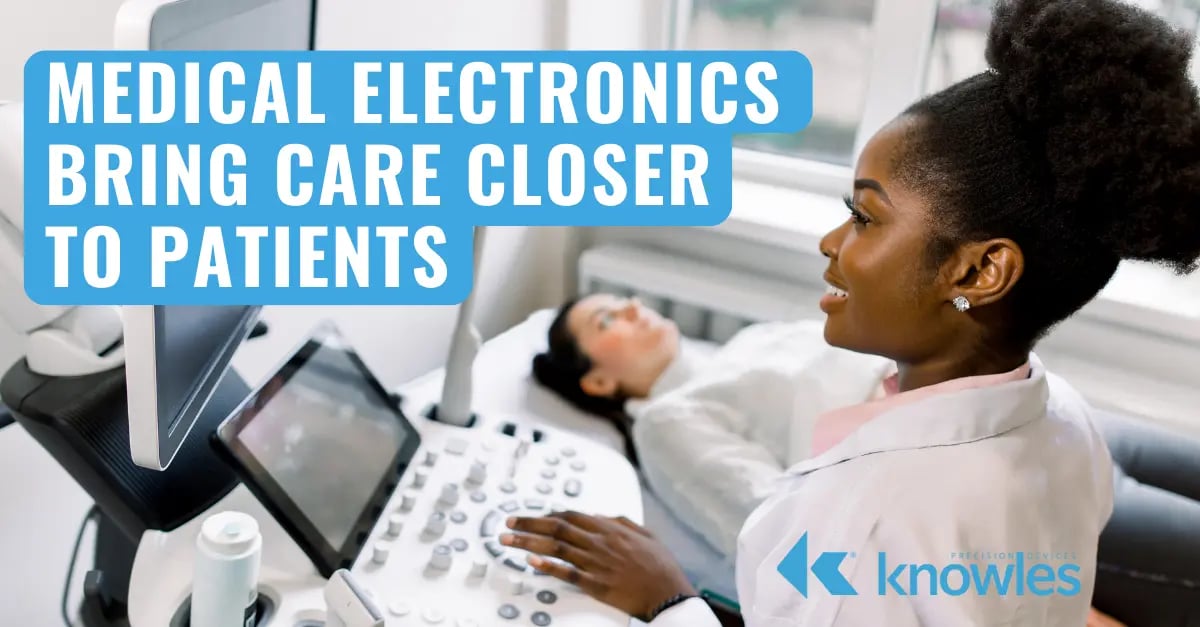Digital and connected healthcare methods are getting better and better at harnessing the full potential of today’s advanced medical technologies and popular consumer devices. This combination is evolving standard healthcare delivery for the digital age. While these technologies still pose privacy, security and access challenges, they’ve made significant strides. The vision of a less hospital-centric, and more patient-centric, system is starting to crystallize.

Here are a few areas where outcomes are improving as technology moves closer to patients.
Wearables
In a healthcare context, wearable technology includes devices that patients or consumers can wear to collect personal data on certain health and exercise metrics. They typically feature sensing technologies that detect information and transmit back to smartphone applications where data can be viewed, analyzed and managed. Growing consumer interest in wearable fitness trackers paired with more ubiquitous network coverage (e.g., smartphones) is setting the scene for more personalized and timely healthcare guidance in terms of monitoring, diagnostics and therapeutics.
Hearables
As a subcategory, hearables encompass a wide variety of wearable technology used for listening and/or monitoring (e.g., health, activity). In the healthcare space, many of these devices are positioned as wellness technologies, but they serve as a foundation for future FDA-approved medical devices. Biofeedback sensors placed in the ear could offer more information on key health parameters. Hearables are expanding the options for those who need hearing aids, but they’re also another source of information like heart rate, blood oxygen saturation and blood pressure.
Remote Patient Monitoring
As remote patient monitoring (RPM) devices evolve into a more effective and more affordable option, they’re becoming more prevalent in patient care plans. RPM devices electronically transmit data between patients and healthcare professionals, on a continuous or periodic basis, even when the patient is outside of a traditional clinical setting. With more information, healthcare professionals have a more accurate picture of a patient’s health and may require less in-person or virtual visits—extending results-driven care to different contexts with less adverse effects or negative outcomes.
Point of Care Diagnosis
After decades of technological development, point-of-care ultrasound (POCUS) is a widely accessible and affordable method of performing advanced diagnostic services. Patient assessment used to rely on technology that required its own suite for proper function, like computed tomography (CT) scans or magnetic resonance imaging (MRI). These imaging modalities are sensitive enough for diagnosis, but they can be time-consuming and physically demanding for critically ill patients. With the invention of ultrasound technology and the availability of better transducers, clearer images, and real-time display, diagnostics can occur at a patient’s bedside regardless of the setting. Today, healthcare professionals can more swiftly identify patient conditions and make more informed decisions about their care. This improves outcomes, avoids invasive procedures and, ultimately, decreases costs.
Smart Implants
Smart implants, including pacemakers and neuromodulators, are designed to treat diseases, track patient information and/or stimulate regular system functions. With the right combination of sensors and circuits, these devices go beyond replacing organs or tissues. They add functions that weren’t originally present or restore functions that were lost. For smart implants to flourish, designs need be simple, highly sensitive, cost effective and have favorable clinical effects (i.e., avoid harm and adverse effects).
Questions about Knowles Precision Devices’ experience in the medical space? Contact us.

